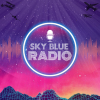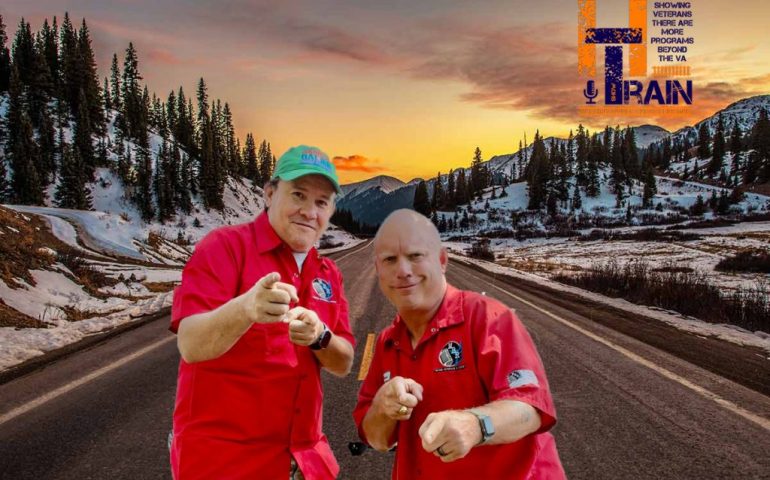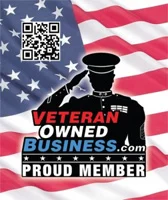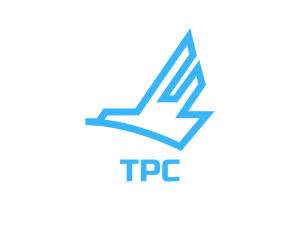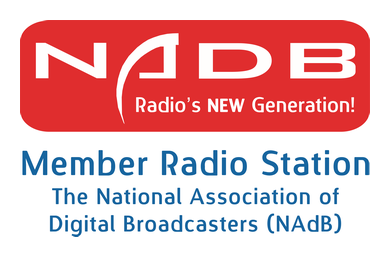AD
Welcome to Simcident Report, where we take a look at noteworthy, dramatic, and historic events in flight simming.
Today, we explore the story of Papa Tango, one of flight sim’s most infamous early payware developers. A developer who from 1999 to 2001, launched a series of legal maneuvers and intimidation tactics that sparked a battle between flight simmers and American Airlines. A battle which threatened to undermine the open nature of add-ons and reshape the future of simming.
On Payware and Freeware
Flight simulation is not unique in the gaming world for having a robust modding community. Perhaps a bit more unique, is the manner in which flight sim add-ons are roughly divided into two categories of payware and freeware. Microsoft and other flight sim developers actively encourage the development of both payware and freeware add-ons and include tools with their simulators to aid in their development. All of this is of course done in the name of realism. High-quality add-ons based on real-world aircraft and locations increase the immersion for the virtual pilot.
The modern state of flight sim payware and freeware is largely taken for granted by players who have come to rely on a wide variety of aircraft, liveries, scenery, and more all available online. Thanks to the open nature of flight sim modding and development, there’s a very low barrier to entry and anyone dedicated enough can drop a few 3D models on the ground at their local airport, try their hand at creating a new aircraft from scratch, or repaint their favorite plane in the livery of any airline they please.
Fun With International Copyright Law
In the late 90s, internet commerce was still in its infancy, so most payware flight sim add-ons were distributed in boxed copies available at retailers or by mail order from catalogs. Sharing retail shelf space with products from recognizable game developers gave payware an air of prestige and legitimacy, and customers came to expect higher quality and better service from payware developers.
Available now at your local CompUSA… or regional equivalent.
Those turned off by the high price of payware could turn to the World Wide Web, where a robust community of developers and modelers created add-ons that were freely distributed via free ad-supported libraries such as AVSIM, or membership-supported ones such as MicroWings.
In many cases, payware and freeware coexisted in a peaceful, symbiotic relationship. It was a common (but not universal) practice for payware developers to pay large licensing fees to aircraft manufacturers and airlines for the use of their trademarks; after all, these were commercial products. Therefore, it wasn’t economically feasible for payware developers to license and include repaints and liveries for every single airline in their packages. This is where the freeware world stepped in.
Although commercial use of a trademark clearly required the approval of the rights holder, publishing a free add-on was generally considered fair game, or at the very least a legal grey area. While making a high-quality plane for a flight sim was a difficult undertaking, creating a new texture for one was relatively straightforward, so it didn’t take long for most payware aircraft to have dozens or even hundreds of free repaints available for every conceivable airline.
So, purchase the legally licensed plane, download the definitely not commercial repaint, and everyone is happy and probably not breaking any laws.
However, not everyone was satisfied with the status quo.
Litigation. The American Way!
Flight sim forum and freeware library FlightSim.com had for some time hosted a collection of models and textures of various aircraft on their website for use in flight sim. This, of course, included large airlines such as American Airlines. That is, until August 1999, when the site received a letter from Dallas law firm Gardere & Wynne, which represented the airline. The letter warned that FlightSim.com’s unauthorized use of American’s trademarks “creates an incorrect perception that there is an association… between you and American Airlines.” FlightSim.com contacted the law firm, and over the course of their conversation, it became clear that American Airlines was making an effort to scrub all unauthorized use of its trademarks from the internet. This meant any aircraft published with a livery from American Airlines, American Eagle, TWA, and others had to be removed from the site immediately.
American Airlines’s lawyers spit upon your love of polished aluminum.
FlightSim.com attempted to contact American Airlines’s licensing agent, Equity Management, to negotiate a blanket license for the use of American’s liveries for freeware flight sim add-ons. Unfortunately, Equity Management told them that American Airlines had already entered into an exclusive agreement with an unnamed software developer who had licensed American trademarks for use in an unspecified flight sim project.
Soon more sites such as MicroWings and American Airlines Virtual Airlines were contacted by American Airlines’s lawyers and were also forced to remove American branding from their sites. News of the cease and desist letters spread through the flight sim community and even saw some coverage by more mainstream sources such as The Mercury News.
The Untimely Death of Freeware
The backlash against American Airlines was growing on the various flight sim forums while speculation ran wild over the identity of this unknown publisher which had signed the exclusive deal.
In an attempt to quell the angry virtual pilots, the unknown publisher reached out to AVSIM and other outlets which agreed to publish an anonymous statement.
It is a known fact, as has been stated previously on a number of Flight Sim Internet sites and newsgroups that the vast majority of the Flight Sim Community has, for almost a decade, flaunted copyright law by making available, as freeware, shareware and surprisingly, payware, the images, trademarks, logos and brands of many airlines without the legal owners permission.
We, as a commercial publisher, approached American Airlines for permission to use their trademarks and brands in future products so as not to flaunt copyright law. Their response was to invite us, at our discretion, to talk with them and negotiate a license for the use of all their copyright images, trademarks, logos and brands; past, present and future, with their airlines, their subsidiaries and divisions which we were happy to do.
In a similar vein, we have entered into other agreements with many other airlines but we are not prepared at this stage to disclose the names or the details of these airlines.
The benefits of this confidential and exclusive agreement in terms of product will be made legally available to the Flight Sim Community in good time.
We would ask the Flight Sim Community to respect the fact that the matter in question has come as a surprise to us who for so long have been active supporters of freeware.
We are, of course, now talking to American Airlines about the freeware issue and should a fair and beneficial solution be found, a press statement will be released with details.
While no one could argue that American Airlines didn’t have a legal right and obligation to protect its trademarks, American’s approach came off as heavy-handed. After all, these were freeware projects for flight simulators. Nobody was making any money off of them, and if anything, it increased brand visibility for American Airlines.
In an opinion piece on the issue, AVSIM’s lead writer and CEO, Tom Allensworth, envisioned a nightmare future in which freeware authors could be forced to pay license fees for a trademark or, in the case of exclusive deals sold to payware developers, have to navigate a complex web of rights holders all just to produce a virtual plane that would be given away for free. Across the forums, simmers decried the death of freeware and complained that flight simulators would get a little less realistic over corporate greed.
Speculation continued over the identity of the anonymous publisher, but one name kept coming back up. Papa Tango…
The Papa of Flight Sim Drama
Papa Tango, named for the ICAO phonetic alphabet pronunciation of the initials of its founder, Peter Tishma, was one of the bigger names in the early flight sim payware scene.
Papa Tango would release many products for Microsoft Flight Simulator 1998 and 2000, including various utilities, scenery packs, and aircraft. They would also serve as a publisher for other developers, such as Phoenix Simulations. The most notable release from Papa Tango would come in July of 1999 when thanks to a commercial agreement signed with former F1 pilot, turned airline owner Nikki Lauda, Papa Tango released Fly Lauda, a collection of aircraft, scenery, and flight plans based on the real Lauda Airlines. The product proved popular with fans, and soon a second collaboration titled Lauda 425 was released in which players take the copilot seat of a Lauda CRJ-100ER featuring audio and voiceover captured from the flight deck of a real Lauda flight.
Officially licensed airline merch.
Papa Tango’s approach of licensing real airlines assets for use in flight sim appeared to be paying off. It was only logical for the developer to continue to cultivate these kinds of relationships, so they signed deals with other airlines and groups such as British Airways, American Airlines, and the One World Alliance. Soon enough, Papa Tango and Peter Tishma would become famous within the flight sim community for their license agreements… although probably not in the way that anyone hoped…
AVSIM: Home of Community Infighting Since 1997
The first signs of trouble for Papa Tango came in August of 1999, around the same time of the American Airlines cease and desist letters. It started when the popular flight sim news site and forum AVSIM published a less than stellar review for the developer’s Flight Academy add-on. While the review was critical of the aircraft, flights, charts, and panels included with the add-on, significant praise was given to the scenery of Yugoslavia included in the pack.
A late 90s Yugoslavian winter wonderland.
While Flight Academy as a whole would score a dismal 50/100 in AVSIM’s review, the Yugoslavia scenery portion of the add-on would be awarded the coveted AVSIM Award of Excellence (AOE). Much to the chagrin of AVSIM lead Tom Allensworth, Papa Tango proudly advertised the AOE on the listing for the whole of Flight Academy, even though technically it was given only to the scenery portion.
It’s worth noting here for those who aren’t aware, that during his life, Tom Allensworth was a bit of a controversial figure in the flight sim world. This was largely due to his tendency to pick very public fights with other simmers if things didn’t go his way. As a result, the AVSIM forum as a whole developed a reputation within the flight sim world as the saltiest collection of boomer aviation nerds on the internet.
So, when word reached Allensworth that Papa Tango had misused their award, AVSIM released a statement calling Papa Tango out for misleading customers and severed their advertising partnership with the developer. Allensworth, being a man of principle (and spite), couldn’t let Papa Tango’s unethical behavior go unpunished, so he also reneged on his promise to keep Papa Tango’s name out of AVSIM’s reporting on the American Airlines controversy, publicly confirming that Papa Tango was indeed the developer who held the commercial agreement with American Airlines.
War of the Words
Papa Tango responded to AVSIM with their own statement posted to AVSIM rival FlightSim.com, in which they countered that they had permission to use the AOE on their product and had done so for the benefit of AVSIM. They dismissed the request for clarification as unrealistic since AVSIM was attempting to police Papa Tango’s own website. AVSIM responded once again with another statement in which they called Papa Tango childish and unethical for misusing their award and stated that all future recipients would need to sign a license stipulating how the award could be used in their advertising. The matter was finally resolved a few days later, with Papa Tango agreeing to amend their listing to say the product won the AOE for scenery.
The slap fight between AVSIM and Papa Tango would have barely registered on the flight sim drama scale were it not for the American Airlines namedrop… Now, not only had Papa Tango violated the sanctity of the AVSIM Award of Excellence, but they were also confirmed to be the anonymous commercial partner who, according to legions of flight simmers, threatened the very existence of freeware flight sim add-ons.
Dealing With An Internet Mob: Dos and Don’ts
Papa Tango attempted to quell the angry voices in the flight sim community by issuing another statement in which they claimed no responsibility for or advance knowledge of American Airlines’s attack on freeware and claimed that they would work with the airline to find a solution that would allow freeware development to continue while maintaining the value of their own commercial license. They defended their commercial agreement, saying they were simply following the law, and that it was the fault of the freeware developers for knowingly flaunting trademark law that had brought American Airlines’s legal team down on the flight sim world.
At the same time, flight sim fans flooded American Airlines’s email support with questions and complaints about their freeware policy. Now, keep in mind, this was 1999, and facing down an angry internet mob was still a fairly new and scary concept for large non-tech-focused companies. So American Airlines did the most logical thing and responded to the tens of emails by immediately throwing their commercial partner under the Airbus.
We hope you will understand that the events of the past few weeks were not motivated by our desire to be heavy handed with flight simulator enthusiasts, but rather by our desire to honor the licensing commitments we have with other companies.
There is some good news to report. We understand that negotiations are under way between our primary Internet licensee, Papa Tango, and several flight sim-related websites concerning the availability of our logos on those sites for download by flight sim enthusiasts. Preliminary reports indicate that progress is being made, and thus, we are hopeful this situation will be resolved sometime very soon.
Essentially, Papa Tango was telling the flight sim community that they were negotiating with American Airlines for the benefit of freeware, while American Airlines said their cease and desists were for the sole benefit of Papa Tango.
In response to these revelations, forum members organized a boycott of both Papa Tango and American Airlines. For American Airlines, this boycott likely barely registered on their sales radar. For Papa Tango on the other hand, this boycott meant the very real risk of losing their core audience.
Into the Lion’s Den
In an attempt to clarify their position, Papa Tango’s lead Peter Tishma arranged a Q&A session to be held on the AVSIM forum. Unfortunately, this forum, like much of AVSIM from before ~2004, appears to have never been archived and has therefore been lost to time. Fortunately, thanks to a summary posted by Tom Allensworth a few days later… and later letters sent by Papa Tango’s attorneys threatening legal action due to defamation… it’s safe to say that things got heated very quickly.
In his summary, Allensworth stated that the forum was opened for discussion as scheduled, but Tishma was nowhere to be found. As a result of this delay, by the time Tishma was online, the tone of the posts had already become hostile, leaving him alone to face a multi-pronged assault in multiple threads.
Over the course of the discussion and subsequent summary, several key facts came out that shed additional light on American Airlines’s deal with Papa Tango.
Tishma had provided Equity Management with a list of sites hosting freeware which included FlightSim.com, Simflight, American Airlines Virtual Airlines, Indiana University at Pennsylvania (IUP), MicroWings, and AVSIM.
The only sites which had received a cease and desist from American Airlines were MicroWings, which charged a membership fee for access to the files, FlightSim.com, which offered a premium tier for downloads, and American Airlines Virtual Airlines. The first two could be construed as profiting off of American’s assets, while American Airlines Virtual Airlines could have been seen as confusing for potential customers looking for American’s website.
AVSIM, Simflight, and IUP, which distributed freeware with no fee had not been contacted by lawyers representing American Airlines. This seemed to imply that even though the airline knew of the existence of these sites thanks to Tishma, they didn’t see enough of a threat to send a cease and desist.
It was Papa Tango’s intention to ensure that the freeware community respected the trademarks of the real-world airlines they were basing their designs off of.
Papa Tango had paid American Airlines £25,000 for the rights to their logos and needed to protect this investment by any means necessary.
Papa Tango did not intend to charge freeware developers a sub-license fee for the trademark but did intend the limit the number of freeware developers who could sub-license their licensed trademarks in proportion to Papa Tango’s sales.
Papa Tango believed it didn’t need the freeware developers and their participation would be “a gesture on their part and would contribute towards the costs of helping to service their hobby.”
Papa Tango was seeking to discuss who should be in control of the “licensed” freeware sites and who would police “unlicensed” ones.
Papa Tango believed the freeware American Airlines offerings competed directly with their payware offerings.
In the view of Allensworth, Tishma was arrogantly attempting to convince the flight sim world that he had an exclusive deal with American Airlines granting him rights to all published freeware and payware add-ons featuring American Airlines’s assets when in reality all he had was a commercial agreement to sell products with their logo. Tishma was effectively trying to stifle competition, which was somewhat understandable considering that his “competitors” were giving their products away for the hard-to-beat price of free.
From the statements made by Tishma, it was clear that the “freeware issue” that he claimed he was trying to resolve was in fact an issue entirely of his own making. American Airlines had only gone after sites that they viewed as selling their assets, and yet Tishma specifically referenced freeware as a whole in all of his public statements and private discussions with site admins.
It seemed clear that Tishma had overstepped his boundaries, and American Airlines appeared completely uninterested in backing up his claims. The Q&A session had clearly backfired, and the movement to boycott Papa Tango products was gaining steam. And so with his back against the wall and nobody coming to his defense, Tishma pulled what would become a classic flight sim move…
Double down and threaten legal action against your critics!
Send in The Lawyers
In August of 2000, Papa Tango put out another press release in which they reiterated their stance on freeware saying that they wanted to ensure that freeware could flourish “within the terms of its agreements with its licensed parties.” and that “as an added benefit for the community, Papa Tango Limited will join with its licensors to take action against any commercial party who are seen to exploit any freeware, without permission, for the publisher’s own commercial gain.”
The statement goes on to claim that the online attacks against Papa Tango, which unfortunately now included death threats against the developers and their families, were based on false and defamatory information which possibly originated from a competitor.
Papa Tango then claimed that they were working to restore freeware that had been “unfairly removed.”
Publicly, Papa Tango was in full damage control mode, trying to reframe themselves as the hero working to ensure the future peaceful coexistence of both payware and freeware within the confines of applicable trademark law.
Privately, they were working to squash the critical online discussion running rampant on the forums and in newsletters. Papa Tango sent a barrage of cease and desist letters to various publications in the flight sim world. Some, such as TheMag FS News, chose to print retractions rather than face Papa Tango in court.
AVSIM, chose to fight; because nobody out-petties AVSIM.
Pick Your Battles
In a letter sent by Papa Tango’s attorneys to AVSIM, and subsequently published by AVSIM for extra spite points, Papa Tango highlighted what it classified as rampant misinformation in a thread entitled “BOYCOTT PAPA TANGO.” The letter alleges that AVSIM moderators actively engaged in discussion defaming Papa Tango and Tishma, which implied approval on the part of AVSIM as a publisher. The letter highlights such gems as “PTL are described as “greedy, self-indulged scum bags” and “Tishima” (undoubtedly a reference to Mr. Peter Tishma of PTL) as “a money-grabbing, back-stabbing little puke head” and “that scum”.
Allensworth responded on AVSIM to Tishma with:
In so far as the single message that did contain the words included in the document above did violate our terms and conditions, we have accordingly removed that message in keeping with our terms. As for the rest of the material contained in this letter, we wish Mr. Tishma and his legal team the best of luck in stemming the tide of ill will that his actions over the last year have generated. AVSIM Online Inc. looks forward to resolving any further issues that Mr. Tishma may have with our publication in a relevant U.S. Court of Law.
Allensworth had told Tishma to “bring it” but since flight sim legal threats basically never actually make it to court, Tishma and Papa Tango finally gave up and went quiet.
The Status Quo Returns
In April of 2001, AVSIM made an announcement releasing a letter they had received directly from American Airlines regarding the status of freeware add-ons using the airline’s trademarks.
I understand that you have created or are distributing an American Airlines livery for flight simulator programs. We at American are flattered that you have taken the time and effort to recreate or distribute our livery. We believe that we have the most recognizable and attractive livery in the industry, and that our livery is one our company’s most valuable assets.
Naturally, we must always take steps to protect such a valuable asset. That is why the livery and the marks appearing on the plane are registered trademarks of American Airlines. That is also why we cannot allow unlicensed commercial use of the marks or the livery.
…
As far as we can tell at this time, you are simply creating or distributing the American Airlines livery as a hobby, and you are not seeking to make money by doing so. We also believe that you do not have an associated commercial enterprise that you are using the livery to bolster. If this is true, then we do not have an objection to your use of the livery so long as you sign and return this letter in the appropriate space below so that we can prove that we have adequately protected and monitored our marks.
Just a week later AVSIM announced the creation of an online registration system for those wishing to create and distribute American Airlines liveries. All the freeware developers would need to do is include a statement in a conspicuous place with their download:
Not for commercial sale. Not affiliated with or endorsed by American Airlines.
With the new system in place, AVSIM had produced what Papa Tango had claimed they were working on for nearly two years; a system for freeware developers to use American Airlines trademarks within applicable commercial agreements and trademark law. The matter of freeware use of real-world airline trademarks was finally a resolved issue… or at least it was in the case of American Airlines. In any case, the freeware community could continue to operate as it had for years, skirting trademark law by giving things away in a non-commercial setting.
A Man of Many Faces
So what happened to Tishma and Papa Tango?
Tishma’s name began floating around flight sim message boards again later in 2001 when it was reported by AVSIM that he had filed a patent for a multi-purpose driving/boating/flight simulator for PC. Across the forums and message boards, Tishma was mocked for what was characterized as his filing for a patent on flight simulators.
Papa Tango’s reputation never recovered and by 2002 the company and its parent, Corporate Worldwide Limited, would be formally dissolved by bankruptcy courts in the UK.
However, Tishma just couldn’t stay away from controversy and would continue to operate in the flight sim world under various aliases and other companies.
Another company started by Tishma, World Air Sim, found itself embroiled in another controversy when it was caught repackaging old Microsoft Flight Simulator 2000 add-ons for Microsoft Flight Simulator 2002 with no included patches to make the old planes work in the new simulator.
Tishma would reappear again in 2002 after the result of an “investigation” by AVSIM revealed him as the head of add-on developer Ariane Design. Ariane generated further controversy for delivering sub-par products and refusing to refund customers. Despite this, the company remained around until at least 2014 before fading away.
I couldn’t find any references to Tishma or his companies post 2014 so it’s possible that he has either finally given up developing flight sim add-ons or has just gotten really good at concealing his identity.
Scary Stories to Tell Flight Simmers at Night
In the aftermath of the American Airlines incident, Papa Tango became something of a bogeyman within the flight sim community. Across various threads, the company and its license agreements were blamed for everything from Microsoft Flight Simulator 2000 being delayed to the Concorde being removed from Flight Simulator 2002.
Papa Tango would pop up as an example when add-on developers or trademark holders were caught engaging in scummy behavior in a number of sim communities.
Tom Allensworth would write a brief retrospective on the Papa Tango Affair in 2012 as part of AVSIM’s 15 year anniversary, in which he praised himself for standing up to Tishma and saving the flight sim hobby.
Self-aggrandizing aside, the AVSIM post raises some interesting questions. What if Papa Tango had succeeded in convincing the freeware world that they would need to sub-license liveries through commercial rights holders? What if American Airlines, seeing the drama unfold around their brand, had stepped in and struck down all American Airlines themed flight sim add-ons? Would other airlines have followed suit? If the freeware community hadn’t fought back against Papa Tango, would there still be freeware aircraft based on real-world airlines? Would this kind of behavior have spread to other modding communities? Would any of this have held up outside of internet court?
In the end, it’s impossible to say what might have been had it not been for the stubbornness of late 90s internet forum users. In any case, the same old status quo around payware and freeware holds today; purchase the legally licensed plane, download the definitely not commercial repaint, and everyone is happy and probably not breaking any laws.
AD
